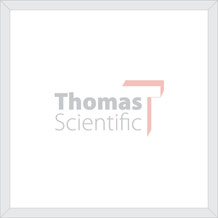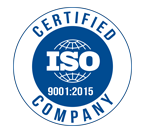Biologically Active Small Molecules, UN3462, 1.0 mg
-
Ochratoxin A
Cayman ChemicalA mycotoxin produced by A. ochraceus, A. carbonarius, and P. verrucosum that is commonly found as a food contaminant (Tolerable Weekly Intake = 100 ng/kg body weight per day); triggers nephropathy, induces renal adenomas, and initiates skin tumors through events involving oxidative stress,…
-
Patulin
Cayman ChemicalA mycotoxin produced by a variety of molds, including Aspergillus and Penicillium, commonly found in rotting apples; demonstrates an oral LD50 between 29 and 55 mg/kg body weight in rodents and 170 mg/kg body weight in poultry and has been shown to induce nephropathy and gastrointestinal tract…
-
Tunicamycin
Cayman ChemicalA specific inhibitor of N-linked glycoslylation that blocks the first step of glycoprotein synthesis and induces protein unfolding; impairs the function of several receptor tyrosine kinases, including EGFR, ErbB2, ErbB3, IGF-IR, and ALK; radiosensitizes glioma and pancreatic adenocarcinoma cells to…
-
Actinomycin
LKT LabsActinomycin D is a polypeptide antibiotic produced from Streptomyces; it exhibits anticancer chemotherapeutic activity but does not display antibacterial benefit. Actinomycin D is clinically used to treat various cancers and is one component of the VAC chemotherapy regimen. Actinomycin D binds DNA,…
-
Citrinin
Cayman ChemicalA mycotoxin found as food contaminants that causes mycotoxic nephropathy in livestock and Balkan nephropathy and yellow rice fever in humans; induces apoptosis, blocks tubulin polymerization, and disrupts mitotic spindle assembly.
-
Anisomycin
Cayman ChemicalA pyrrolidine antibiotic produced by S. griseolus that inhibits protein and DNA synthesis and activates stress-activated protein kinase, MAPK, and other signal transduction pathways.
-
Mitomycin C
Cayman ChemicalAn antitumor antibiotic that crosslinks double stranded DNA and is widely used as a tool to selectively inhibit DNA synthesis and mutagenensis, to stimulate genetic recombination, chromosome breakage and sister chromatid exchange, and to induce DNA repair.
-
diacetoxy Scirpenol
Cayman ChemicalA potent, trichothecene mycotoxin produced by certain Fusarium strains that is toxic to fungi, plants, animals, and various mammalian tissue cultures via inhibition de novo protein synthesis.
-
Alamethicin
Cayman ChemicalA membrane active peptide antibiotic of the peptaibol class that strongly induces helical peptide structures and forms voltage-gated ion channels in the lipid bilayers of cell membranes; often used to study ion channel assembly, voltage gating, and peptide-membrane interactions as well as to induce…
-
Nigericin (sodium salt)
Cayman ChemicalAn antibiotic derived from S. hygroscopicus that acts as a potassium ionophore promoting K+/H+ exchange across mitochondrial membranes; used as a research tool to disrupt intracellular H+ and K+ concentration, thus altering pH, membrane potential, and cell volume.
-
Ellipticine
Cayman ChemicalA DNA-intercalating antitumor agent that forms covalent adducts in DNA after being enzymatically activated with CYP3A4, CYP1A1, or CYP1A2 or by peroxidases in target tissues; inhibits the proliferation of human breast adenocarcinoma, leukemia, neuroblastoma, and glioblastoma cells (IC50s…
-
Sterigmatocystin
Cayman ChemicalA mycotoxin that can have developmental, teratogenic, and carcinogenic effects in animals.
-
Gliotoxin
Cayman ChemicalAn immunosuppressive mycotoxin which inhibits 20S proteasomal chymotrypsin activity (IC50 = 10 μM), preventing activation of NF-κB; induces apoptosis in monocytes and dendritic cells and reduces phagocytosis by neutrophils; inhibits geranylgeranyltransferase I and farnesyltransferase (IC50…
-
Azaserine
Cayman ChemicalA tumor-inhibiting antibiotic that inhibits the glutamine-dependent amidotransferases involved in nucleotide biosynthesis, N-formylglycineamidine ribotide synthetase and glucosamine-6-phosphate isomerase; also inhibits the hexosamine biosynthetic pathway, which has been shown to protect against…
-
Digitoxigenin
Cayman ChemicalA cardenolide and aglycone constituent of digitoxin that elicits cardiac contraction and cardiotonic effects by inhibiting the Na+/K+ ATPase; inhibits protein synthesis and has been examined for use as an antitumor compound.
















